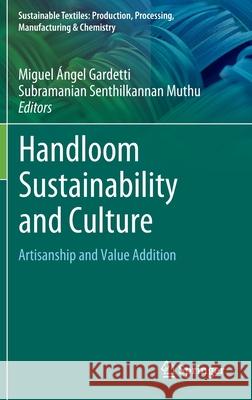Handloom Sustainability and Culture: Artisanship and Value Addition » książka
topmenu
Handloom Sustainability and Culture: Artisanship and Value Addition
ISBN-13: 9789811652714 / Angielski / Twarda / 2021 / 230 str.
Kategorie BISAC:
Wydawca:
Springer
Seria wydawnicza:
Język:
Angielski
ISBN-13:
9789811652714
Rok wydania:
2021
Wydanie:
2022
Numer serii:
001053391
Ilość stron:
230
Waga:
0.45 kg
Wymiary:
23.39 x 15.6 x 1.27
Oprawa:
Twarda
Wolumenów:
01
Dodatkowe informacje:
Wydanie ilustrowane











